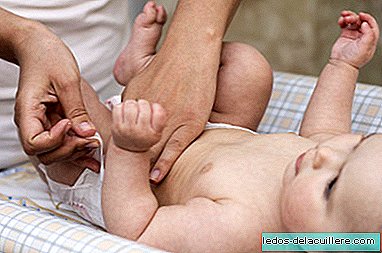
Heat, frequent baths and increased perspiration imply greater possibilities of developing fungi and bacteria in the vaginal flora. This causes the number of vaginal infections to increase in summer.
If we add to this the hormonal and vaginal flora changes that occur during pregnancy, we find that infections are even more frequent for future moms, as explained by Dr. Elena Barrajón, from the Gynecology and Obstetrics Service of the Severo Ochoa University Hospital in Madrid.
Most frequent infections
During pregnancy, the future mother may have vulvovaginal candidiasis (fungal infection) or bacterial vaginosis.
They appear at any time during pregnancy, although it is in the third trimester when the woman is more predisposed, due to an increase in vaginal discharge and vascularization, which together with hormonal changes, favor the growth of fungi.
- Vaginal candidiasis
According to the Spanish Academy of Dermatology and Venerology (AEDV) it is so common, that It is estimated that 90% of women suffer from it at least once in their life.
Cándidas are part of the normal flora of the vagina and digestive tract. The American Pregnancy Association explains that:
“Vaginal fungus infection occurs when normal levels of acid and candida (fungus) in the vagina are unbalanced. This allows the bacteria to grow too much causing vaginal candidiasis, very uncomfortable but not dangerous. ”
- Bacterial vaginosis
The Centers for Disease Control and Prevention of the United States (CDV) comments that:
"This is the most common vaginal infection in women aged 15 to 44, although it often has no symptoms."
They admit that "the cause that causes it is unknown although it is associated with an imbalance of the 'good' and 'harmful' bacteria, which are normally found in a woman's vagina. It seems to be transmitted by sexual intercourse and usually requires antibiotic treatment. "

Do you suspect Consult your doctor
Sometimes they can go unnoticed and are only diagnosed when the gynecologist performs a vaginal flow analysis.
Still there is a series of symptoms that suspect its presence: vaginal or vulvar itching, whitish discharge, with lumpy appearance or unpleasant smell, burning, irritation or redness of the vulva, or even pain when urinating or having sex.
Needless to say, It is essential to visit the gynecologist who takes your pregnancy to the slightest discomfort because some infections, such as bacterial vaginosis, are associated with pregnancy complications (such as premature delivery). This is stated by the United States CDC
This precaution is even more important when your baby's birth is near, since if it is born vaginally it could be spread with bacteria Harmful of your vagina.
The specialist will grow your flora to know if there is an infection and what causes it to give you the necessary treatment, always safe for you and your baby.
It can be treated by applying cream to the area or vaginal ovules. If the infection is caused by bacteria, it may be necessary to take an antibiotic.
Dr. Barrajón also recommends that:
"Women with a history of repeat infections before pregnancy, use vaginal probiotics (ovules) in summer, always with medical supervision."
Vaginal infections usually reappear (even after proper treatment), since it is difficult to restore the vaginal flora once it has been altered.
How to avoid them?
The gynecologist of the Gregorio Marañón Hospital, Elena Barrajón and The American Pregnancy Association, advise:
Ensure proper hygiene, using neutral soaps that do not irritate. You have to shower after bathing in the sea or the pool to prevent possible irritation in the genital areas by salt, sand or chlorine.
Wear cotton and baggy underwear to ensure adequate perspiration. This prevents the increase in temperature and humidity in the vaginal area.
Control humidity after baths. In summer it is usual to keep the swimsuit wet, a practice not recommended because humidity favors infections. It is advisable to take a spare and not stay with it wet more than 30 minutes.
Drink plenty of water. It is essential not to become dehydrated during pregnancy, when the woman is most vulnerable, but it also helps prevent infections since the water prevents germs from accumulating in the urinary tract, eliminating them in the urine.
• Use a hair dryer (with fresh air) to help dry the genital area, after showering.
• Clean from front to back After using the bathroom, to avoid contaminating the vaginal area with possible fecal remains.
• Do not douche because they modify the vaginal microbiota and this favors the appearance of fungi.
• Do not use scented feminine hygiene products, because they can irritate.
• Include in the daily diet yogurt with lactobacillus acidophilus.
• Limit sugar intake, since sugar promotes the growth of these bacteria.
• To rest well so that the body can fight infections better.
In Babies and More Pregnant in summer? How is the experience? The question of the week, Gestational chloasma: how to avoid pregnancy spots in summer, Barrigas in the sun with caution: seven tips for pregnant women in summer












